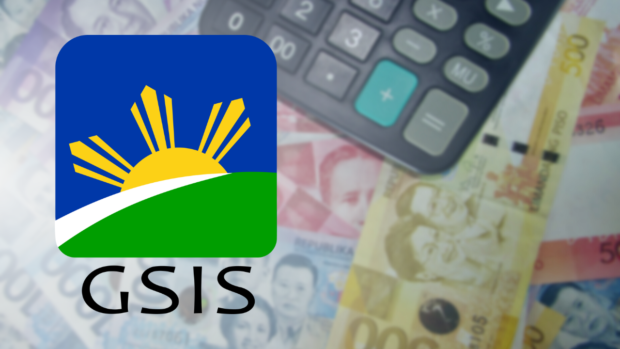MANILA, Philippines—To shore up pension funds for government workers and retirees, the state-run Government Service Insurance System (GSIS) is eyeing more infrastructure investments as well as joint-venture development of its prime properties, its new president and general manager Wick Veloso said on Friday (July 29).
Out of the GSIS’s P104-billion investible funds for 2 million members and 550,000 pensioners, only P35 billion had been invested in infrastructure and private equities so far, GSIS executive vice president Dionisio Ebdane Jr. said at a press briefing.
Veloso said the GSIS wanted to be involved in discussions with implementing agencies that have shovel-ready infrastructure projects needing financing. The GSIS chief said the pension fund was looking into investing—through loans or equity—in projects involving power, telecommunications, digital infrastructure, housing, food security, electricity, water, and medical services.
Veloso pointed to “good” and longer returns from investments in infrastructure projects. “We will not only safely grow our fund, but also help in nation-building,” he said.
The GSIS last invested P16.8 billion in infrastructure a decade ago through the public-private Philippine Investment Alliance for Infrastructure (Pinai), which will wind down in 2024.
Another way to enlarge the GSIS fund will be by entering into joint ventures, or long-term lease agreements, with private developers for at least 65 idle assets, Veloso said, instead of selling these for one-time gains.
The GSIS last sold two lots in Bonifacio Global City (BCG) for P1.5 billion in 2014. The lots back then fetched about P500,000 per square meter. Veloso noted that property prices now would be much higher, hence the GSIS should hold on to these assets to generate recurring income while allowing private firms to develop or lease them, subject to minimum rental rates and terms.
The total value of these big-ticket properties in the GSIS pipeline was unavailable, but among those being considered for long-term lease included its Julia Vargas property within the Ortigas business district, as well as properties in Legaspi Village, Makati City; in the cities of Baguio and Dumaguete; and along Taft Avenue in Manila.
Veloso said that while it’s a good time to invest in stocks here and abroad as the market is down due to global uncertainties, the GSIS will first determine if it still needs more domestic and global fund managers. At present, 70 percent of GSIS investments were peso-denominated, while the rest were in US dollars, he noted.
The GSIS was badly hit by the market slump such that its net income in the first half of 2022 fell by 94.1 percent year-on-year to P41.3 billion.
The GSIS laid the blame for the drop in first-half bottom line mostly on P45.7-billion losses on mark to market valuation of properties — P27.1 billion in domestic equities plus P18.6 billion in exchange traded funds (ETFs), citing a decline in Philippine Stock Exchange (PSE) index by a bigger 967.2 points as of end-June compared to 237.8 points in 2021.
The market rout also reduced the GSIS’s total assets by 3.2 percent to P48.5 billion mainly due to the decline in market value of equities and fixed-income securities, or its holdings of corporate and government-issued bonds. The GSIS shed a net of P29.6 billion in government securities, P9.4 billion in equities, and over P7 billion in corporate bonds.
The GSIS nonetheless assured that it can settle its obligations and disburse benefits to members and pensions, pointing to a P25-billion monthly cash flow composed of P13 billion collected from members’ premium contributions, plus P12 billion in loan payments.
“This current weak market environment requires a balance between managing our risks and maximizing future returns by actively searching for the opportunities being presented by the lower prices or cheap valuation,” the GSIS said in a statement.
“At the moment, about 30 percent of our financial assets are already invested abroad. We plan to increase that, consistent with our diversification strategy to generate higher returns and manage liquidity risk,” the GSIS added.
Last May, the GSIS deferred the search for 10 additional equity managers that would invest P10-billion worth of funds in the domestic market. In 2018, the GSIS abandoned its plan to shore up offshore investments as it did not push through with the earlier plan to hire two foreign fund managers.
TSB


